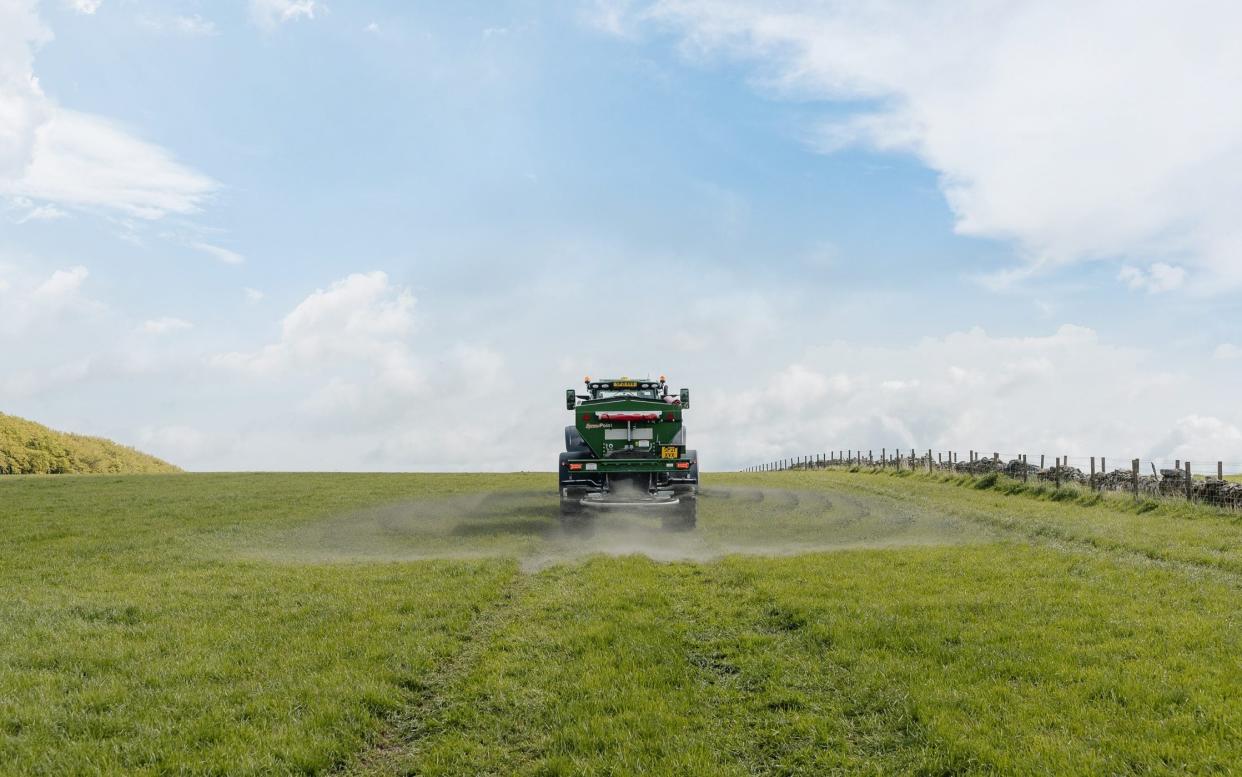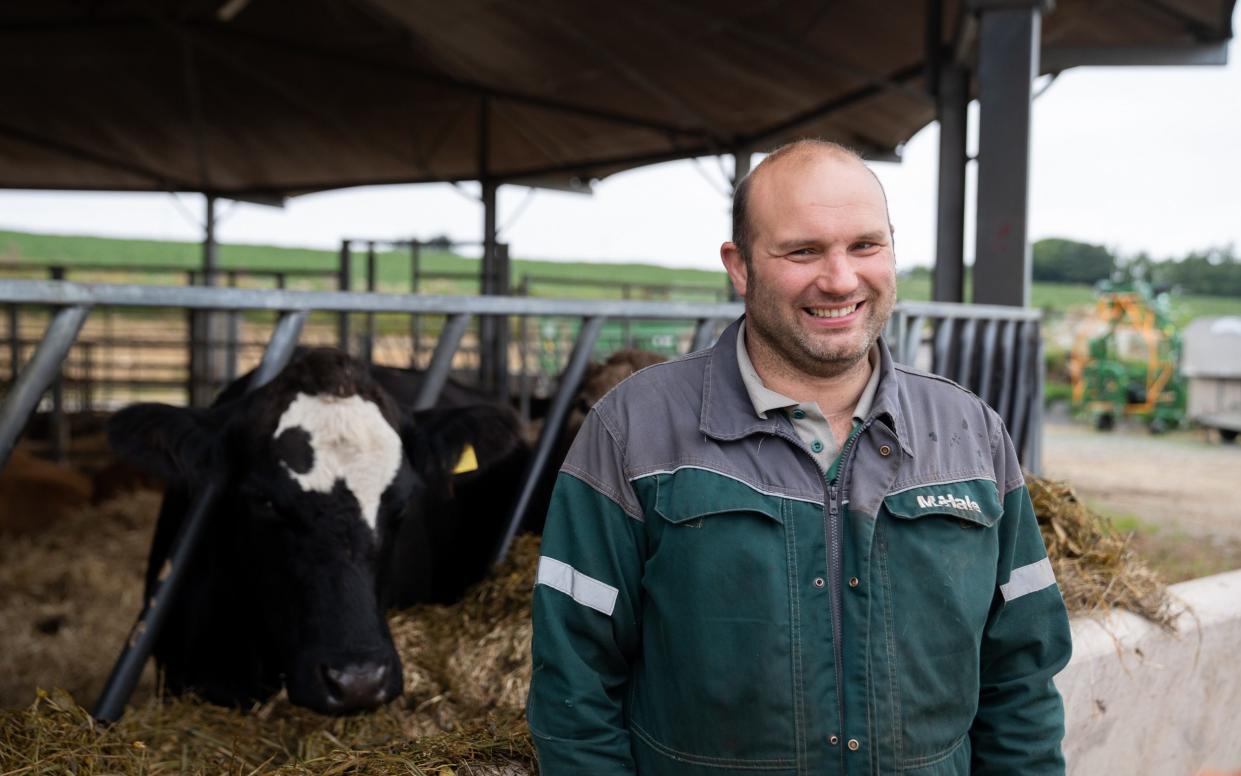Spreading volcanic dust on crops soaks up carbon emissions and boosts yields, study finds

Sprinkling volcanic dust onto crops boosts yields by up to 20 per cent while pulling carbon dioxide from the atmosphere, scientists have shown.
The benefit of using igneous rock for fertilising soils has been known for thousands of years, with farmers in Pompeii benefiting from the rich ash from Vesuvius.
But despite anecdotal evidence, there has been little research proving that the ancient technique could work in temperate British soils.
Now field trials, carried out by Newcastle University and carbon removal company Undo have proved that applying fine basalt to the ground boosts nutrients, such as potassium and magnesium, improving oat harvests.
It is thought the dust allows crops to achieve their full potential by topping up crucial minerals and micro-nutrients, plugging deficiencies which are difficult for farmers to spot. Sampling also showed increases in calcium, suggesting the crops are likely to be healthier for humans.
And it has the added benefit of taking carbon out of the atmosphere in a process known as enhanced rock weathering.
‘It really makes a difference to carbon dioxide removal’
It is estimated that if rolled out widely, the process could remove up to 30 million tonnes of carbon dioxide by 2050, representing 45 per cent of the atmospheric carbon removal Britain requires to reach net-zero.
Prof David Manning, professor of soil science at Newcastle University, said: “For me this goes back 25 years when my sister had a small farm producing organic vegetables and we came up with a volcanic rock product that we sold in the organic farming sector for a couple of years.
“And that got us thinking about how we could use these crushed rocks for farmers. Over the years we’ve had anecdotal responses, such as a farmer in Manchester who was raising Aberdeen Angus and applied it to a field and he could see the beneficial effect easily.
“But that’s not a rigorous result and now we have something that’s peer reviewed and actually makes a difference, not just in crop nutrition but in carbon dioxide removal.”
Rock weathering occurs in nature when carbon dioxide in the atmosphere combines with water and falls to the ground as a very weak acid rain. This acid dissolves rocks, reacting to form bicarbonate which is washed away into the oceans where it is locked away for hundreds of thousands of years. At the same time the process releases helpful nutrients such as calcium, magnesium and potassium into the earth, improving the fertility of soil.
With rocks in nature, rock weathering also removes carbon but it can take tens of thousands or even millions of years. In contrast, finely crushed rock vastly speeds up the effect, with the impact seen in just one growing cycle.
The basalt rock used in the trials was formed around 300 million years ago, when the area was still volcanically active, and is quarried locally for the construction industry. This quarrying process leaves behind vast mounds of finely ground rock which are of little use but which can be spread easily on fields.
Undo, which is the first commercial company to deploy rock weathering as a way to remove carbon dioxide from the atmosphere, is offering to spread the dust for free, for which it generates carbon removal credits.

Dr XinRan Liu, head of Science and Research at Undo and co-author of the new research, said: “If you leave a large rock sitting in a field it will take millions of years to weather, but if you crush it down it happens far more quickly.
“It’s the equivalent of waking up and chucking your coffee beans straight into the machine, you would get a really disappointing coffee, but if you grind down the beans and open up all the reactive surface then you get a potent brew.
“So by speeding up the rock weathering process, you get benefits to the soil, to the crop and of course benefits to the carbon dioxide removal.”
Results from the ongoing trial’s first year at Nafferton Farm in Northumberland, showed crop yield was on average 15 per cent higher – 9.3 per cent on ploughed fields and 20.5 per cent direct drill plots, which are not turned over.
The study, which was published in the journal Plos One, also showed there were no toxic elements, such as nickel, taken up by the crops.


